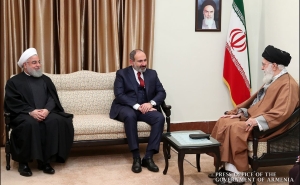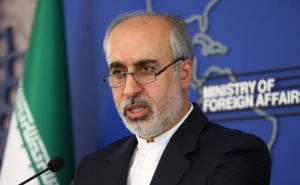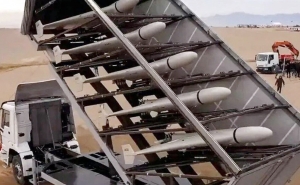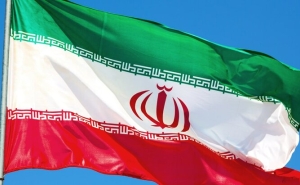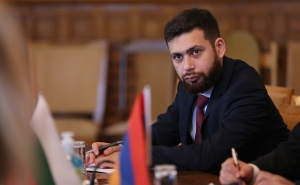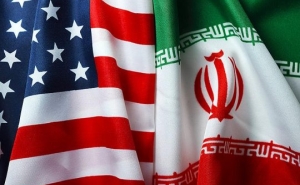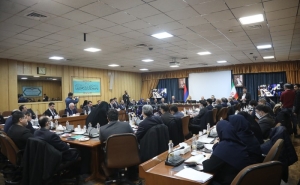 What to Expect from Israel on Iran?
What to Expect from Israel on Iran?
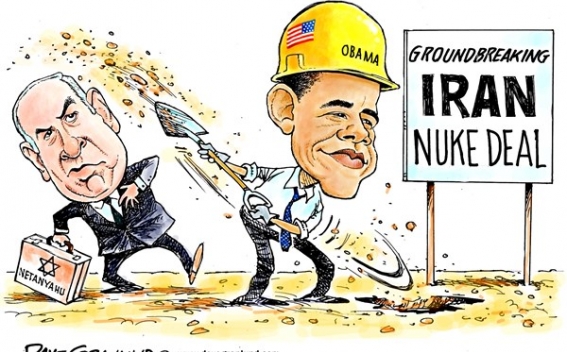
"Israel would be like a thistle in the wilderness after the operation" ,- the threatening sentence of Simon Peres, former president of Israel, aimed at deterring Israel from engaging in the operation labeled "Operation Opera", Israeli raid on Iraqi nuclear reactor, Osirak, in 1981. Simon Peres was not alone in its opposition: half of the representatives of the Knesset (Parliament of Israel) opposed the Israeli possible attack on Osirak. The arguments put on the table by the opponents were as follows: the attack would unite the Arab world and result in their arms buildup against Israel, would harm Israeli peace agreement with Egypt, the counterattack as a result of it would destruct Israeli nuclear reactor in Dimona, would make European countries and America put an embargo on Israel and etc.
June 7, 1981, "The alternative is our destruction", the words of Rafael Eitan, Chief of Staff of the Israeli armed forces, announced the start of the "Operation Opera", with Israeli fourteen F-15s and F-16s passing through Etzion Air Force base in the Negev, heading on over Jordanian, Saudi,and Iraqi airspace, to the Iraqi nuclear reactor Osirak. As Jewish Virtual Library reports, by the time the Israeli planes were flying over Jordan, Kig Hussein of Jordan was vacating in a Jordanian coastal city Aqaba. After King Hussein noticed the planes passing over his head he hurried to inform Iraqi authorities that they may be a potential target of Israeli attacks, however the Iraqi authorities either did not got the message or were late to receive it. They were caught by surprise and their answer was too late. Israeli planes completely destroyed Iraqi nuclear reactor in one minute and twenty seconds
The consequences was universal criticism against Israel, UN Security Council resolution condemning the attack, delay of the US shipment of aircraft from US to Israel.
September 5, 2007 four Israel F-15s and four F-16s again started heading but this time along the Mediterranean Coast in the direction to Syria’s al-Kibar nuclear facility. As the Israeli sources later reported this time again the operation was successful with seventeen tons of explosives being dropped on Syrian nuclear facility and destroying it. After the planes returned to their bases, former Prime minister of Israel Ehud Olmert connected to, at that time the US president Bush, stating: "I just want to report to you that something that existed doesn’t exist anymore. It was done with complete success,"- the New Yorker reports.
It is important to note that as opposed to the similar operation in Iraq, when the Israeli officials started boasting of their successful operation even before the pilots engaged in it returned from Iraq, in the case of Syria , the Israeli officials seemed to have learned from their previous mistakes and in order to avoid the criticism of the international community kept silence. Besides, the case of Syria was different in a way that allowed the Israeli side to take advantage of the President of Syria Bashar Assad’s stance on the issue, who never accepted that there was a nuclear reactor in Syria. It is claimed that the maneuver of Israeli side to keep silence aimed at not putting Assad under pressure to retaliate instead giving him "zone of denial" on the issue. However for the picture to be complete it is important to note that since then there have been a number of questions on the existence of possible nuclear reactor in Syria as it is claimed by Israel.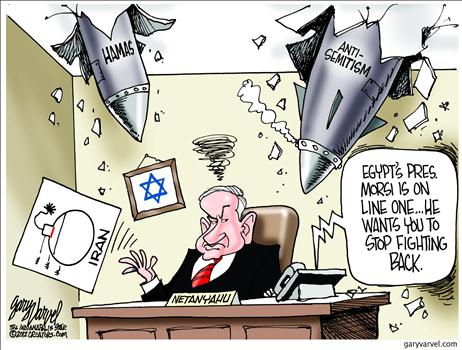
Now after the P 5+1 and Iran managed to reach a framework nuclear agreement that is to pave the way to comprehensive peace agreement, the threats Israeli official to initiate unilateral action make everybody wonder: will Israel take a risk for this time?
To answer the question one needs to weigh the possible risks Israel can face if it chooses "war of planes" instead of "war of ideas". The major factors to consider here are as follows: Israeli possible strike will contain Iran from developing a nuclear deal only for three years, instead it will justify the necessity for Iran to further develop its nuclear program. Besides, as opposed to the case of Iraq and Syria, the Iranian nuclear program is dispersed in various locations and to completely destroy Iran’s nuclear program Israel will need to make several strikes. In this case it is obvious that the Iranians will not wait and see how the Israelis destroy their nuclear facilities and will retaliate; the development that will turn the oil-rich region into chaos and will surely have it repercussion for the West as well.
This reality on the ground proves that at present the threats of the Israeli side to attack Iran nuclear facilities just aim to make further pressure on the international community to get more concessions from Iran before the comprehensive agreement is reached. In this context it is not by chance that Israelis have already started their lobbing with Prime Minister Benjamin Netanyahu's appearing on multiple American TV news programs. As Associated Press reveals the Israelis have already documented in place that identifies their ten points demands that include more intensive system of inspection in Iran, clear demands on what would happen with Iran's stockpile of enriched uranium, etc.
Thus to conclude it is to be stated that at present stage possibility that Israel will resort to "war of planes" is not high. To do this the Israeli side is to make sure that the benefits it can derive from attacking Iran is higher that the costs it will have to face. The history of Israel proves that once they feel that "the alternative is their destruction" they are ready to resort to all unconventional means to minimize the immanent threat. All in all, it is the Israeli long held strategy which runs as follows "the best way to defend is to attack"
Other materials on this subject
- Putin Has Phone Talk With Iran President The political settlement in Syria was initiated by Russia, Turkey and Iran, who also vowed to act as guarantors of the settlement of the Syrian conflict.
- Iran Says Awaits US Response to Nuclear Talks 'Solutions' The negotiations, aimed at bringing the US back into the deal and Iran to full compliance with it, had stalled for about two months.
- US Prepares New Options on Iran in Case Negotiations on Nuclear Deal Fail "Because of the way that the Iranians approached and participated in the last round of talks, the President asked the national security team to be prepared in the event that diplomacy fails and to take...
- Iran Ready for Resultative Talks on Nuclear Deal — Top Diplomat "Despite the fact that the West is not implementing its commitments, Iran, for the sake of demonstrating its good will and with an eye of the lifting of the unilateral and illegal sanctions, is again ready...
- Iran Dismisses Idea of Talks with EU and U.S. to Revive 2015 Nuclear Deal The United States said it was disappointed but remained ready to “re-engage in meaningful diplomacy” and would consult with the other major powers to seek a way forward.
-
 17:08
17:08The regular session of the Anti-corruption Policy Council takes place in Jermuk
-
 15:05
15:05The Prime Minister sends congratulatory messages to the supreme leader of Iran and the President of Iran
-
 11:11
11:11Armenia sends earthquake aid to Turkey
-
 10:43
10:43Commemoration of the Pontiff St. Sahak Partev
-
 09:16
09:16Some roads are closed and difficult to pass in Armenia
-
 19:55
19:55Phone conversation of the Foreign Minister of Armenia with the U.S. Assistant Secretary of State for European and Eurasian Affairs
-
 18:30
18:30Prime Minister Pashinyan and President Khachaturyan meet
-
 18:20
18:20Ararat Mirzoyan with Co-Chairman of the OSCE Minsk Group of France Brice Roquefeuil
-
 17:01
17:01Humans could land on Mars within 10 years, Musk predicts
-
 16:45
16:45France, US urge 'immediate' end to Nagorno Karabakh blockade
-
 16:01
16:01Blockaded Nagorno Karabakh launches fundraiser to support quake-hit Syria
-
 15:59
15:59Earthquake death toll in Turkey rises to 18,342
-
 15:43
15:43Ararat Mirzoyan Held a Telephone Conversation with Sergey Lavrov
-
 15:06
15:06French president rules out fighter jet supplies to Ukraine in near future
-
 14:47
14:475 Day Weather Forecast in Armenia
-
 14:44
14:44President Vahagn Khachaturyan wrote a note in the book of condolences opened in the Embassy of Syria in Armenia
-
 14:20
14:20Azerbaijan’s provocations impede establishment of peace and stability – Armenian FM tells Russian Co-Chair of OSCE MG
-
 12:57
12:57France representation to OSCE: Paris calls on Azerbaijan to restore freedom of movement through Lachin corridor
-
 11:40
11:40Command of Kosovo forces highly appreciated preparation of Armenian peacekeepers
-
 10:16
10:16The United States withdrew from sanctions against Syria for six months the provision of assistance after the earthquake
day
week
month
Humidity: %
Wind: km/h


